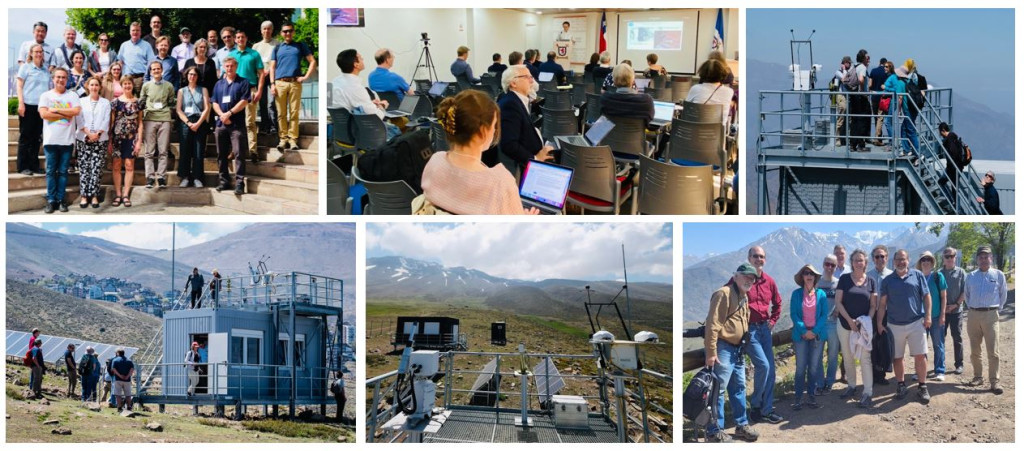The Steering Committee of the Network for the Detection of Atmospheric Composition Change (NDACC) convened its annual meeting from November 11–15, 2024, at the University of Santiago in Chile. The event was conducted in a hybrid format, enabling both in-person and remote attendance to maximize accessibility.
The Radiometry Laboratory at the University of Santiago served as the host for the event. Over the course of four full-day sessions, attendees engaged in fruitful discussions covering a broad range of topics. Key agenda items included:
- Updates on the status of NDACC monitoring stations and data submissions.
- Recent enhancements to the NDACC website.
- Reports from the Working Groups, Cooperating Networks, Ad-Hoc Theme Groups, and related projects.
- Review of a draft paper outlining NDACC’s core objectives and strategies to respond to future challenges. This paper will lead the associated special issue of papers to appear in 2025 in coordination with the celebration of nearly 35 years of NDACC science.
- Plans for a scientific symposium in Fall 2025 celebrating NDACC’s nearly 35 years of operations.
The meeting also featured a series of engaging scientific presentations, including several delivered by Chilean researchers, showcasing the region's contributions to atmospheric science.
On Friday, the final day of the meeting, Dr. Raúl Cordero, Director of the Radiometry Laboratory, led participants on a tour of the lab’s atmospheric monitoring station, located 40 km east of Santiago in the Andes Mountains at an altitude of 2,600 meters above sea level. The station’s strategic location allows researchers to monitor the transport of urban pollution from Santiago into the mountains, providing valuable data for understanding regional aerosol dynamics.
This marked the first time the NDACC meeting was hosted in South America, reflecting the network's global reach and commitment to fostering regional participation.
